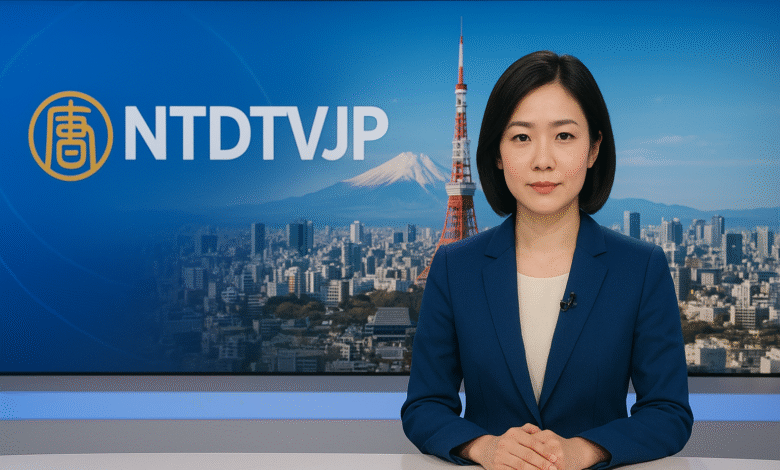The Rise of NTDTVJP in Japan’s Media Space
NTDTVJP has been sneaking into Japan’s digital bloodstream. No marketing blitz. No media circus. Just slow, steady noise.
It’s the Japanese arm of New Tang Dynasty Television — a network that doesn’t do polite journalism. They talk about what others skip: human rights, freedom of speech, and the stories mainstream media buries under ratings pressure.
People who’ve had enough of cookie-cutter broadcasts are tuning in. Not out of curiosity, but relief. Finally—news that doesn’t sound rehearsed.
What NTDTVJP Actually Is
Call it a branch, call it a movement. Doesn’t matter.
NTDTVJP takes global coverage, translates it for Japanese viewers, and adds something rare—context. They don’t chase viral stories. They chase truth, even when it’s uncomfortable.
The network started as part of NTD’s global initiative to create media that isn’t shackled to big advertisers or government talking points. It’s independent journalism, plain and simple. In Japan, that’s almost revolutionary.
Their audience? Japanese-speaking viewers inside and outside Japan—students, expats, truth-seekers, people tired of sanitized narratives.
Japan’s Tight Media Landscape
Here’s the reality: Japan’s media scene runs on quiet conformity.
Big networks play it safe. Too safe. The press avoids friction, and criticism often gets filtered before it ever reaches the screen.
That’s why something like NTDTVJP stands out—it actually questions things.
In a country where “don’t rock the boat” is practically a motto, NTDTVJP feels like a rare kind of honesty.
They’re not shouting “anti-establishment” slogans. They’re just telling stories without fear of who might flinch.
The Content That Defines It
You get a mix—hard news, cultural programs, documentaries, entertainment. But everything feels deliberate.
No filler. No endless celebrity fluff pieces.
Their cultural programming hits especially well with audiences craving authenticity. From human rights stories to spotlights on Japanese traditions, NTDTVJP bridges the past and present with surprising balance.
You’ll find coverage on global issues, too. The kind that connects Japan’s experience to the rest of the world. That global perspective? Competitors don’t come close.
The Digital Shift
Forget print. Forget cable. NTDTVJP’s power lives online.
YouTube, social channels, mobile access—they’re everywhere their audience already is. The move wasn’t just smart—it was survival.
Viewers want independence and convenience. They don’t wait for broadcast schedules; they stream what matters.
NTDTVJP understood that early, turning their digital footprint into a full-blown ecosystem.
And yes, people outside Japan can watch too—through their site, YouTube, and VPN-friendly streams. That’s a quiet advantage the big guys can’t replicate.
Reaching a Global Audience
NTDTVJP isn’t just speaking to Japan—it’s speaking for Japan.
The diaspora loves it. Expats in the U.S., Canada, and Southeast Asia tune in for news that feels like home but thinks globally.
Bilingual viewers appreciate the translation quality. The tone stays respectful but fresh. No lost nuance, no forced localization.
That kind of cross-cultural touch isn’t easy to pull off. But it’s paying off.
The Values Behind the Name
You can smell integrity when it’s real.
NTDTVJP doesn’t pretend to be neutral—no media truly is—but it’s transparent about where it stands: truth over trend, depth over ratings.
There’s also something deeply cultural here. Their programs treat heritage as something alive, not nostalgic. It’s journalism with heart.
And that independence? It’s not just marketing talk—it’s the reason they exist.
The Price of Staying Independent
Freedom comes with a bill.
Funding without corporate sponsors? Tough. Distribution hurdles? Constant. Censorship pressure? Always lurking.
Still, they push through. Audience donations, global support, digital presence—all help them stay afloat without selling their editorial soul.
They’ve built trust the old-fashioned way—by not lying. Radical concept, huh?
Why NTDTVJP Matters
Every media outlet claims to “give a voice.” Few actually do.
NTDTVJP brings coverage others won’t touch. From human rights to social transparency, they don’t chase headlines—they create perspective.
Their impact shows in conversation. Viewers start questioning what they hear elsewhere. That ripple effect? It’s priceless.
This isn’t about taking sides—it’s about giving viewers a choice.
Looking Ahead
NTDTVJP’s future looks bold.
They’re expanding digitally, building new ways for viewers to interact, and experimenting with formats that make serious topics easier to digest.
The next frontier? Probably smart TV integration, stronger mobile apps, and maybe even live translations for global audiences.
Japan’s media future is shifting—and NTDTVJP’s right in the middle of it.
How to Watch NTDTVJP Anywhere
People still ask, “How do I even find it?” Easy.
Head to their official website, their YouTube channel, or stream it through global platforms.
Outside Japan? VPN. Problem solved.
There’s no paywall drama or complicated registration. Just click and watch. Exactly how independent news should work.
Audience Voices and the Growing Community
Scroll through their comments section—it’s all there. Real people, real reactions.
Some thank them for honest coverage. Others debate openly. That’s the point. It’s not an echo chamber—it’s a community that actually engages.
Every great media movement starts this way. With a loyal few who keep showing up because they believe in what’s being built.
Independent Journalism Still Matters
NTDTVJP isn’t some overnight trend. It’s proof that independent media still has teeth.
In a country obsessed with harmony, they’re proof that truth doesn’t always have to whisper.
They’ve carved a space where honesty feels dangerous again—and that’s a compliment.
This isn’t about being flashy or rebellious. It’s about being real.
So, whether you’re in Tokyo or Toronto, NTDTVJP offers something rare—news that doesn’t talk down to you. Just raw stories, unfiltered, honest, human.
And in today’s media climate? That might be the most radical thing left.
